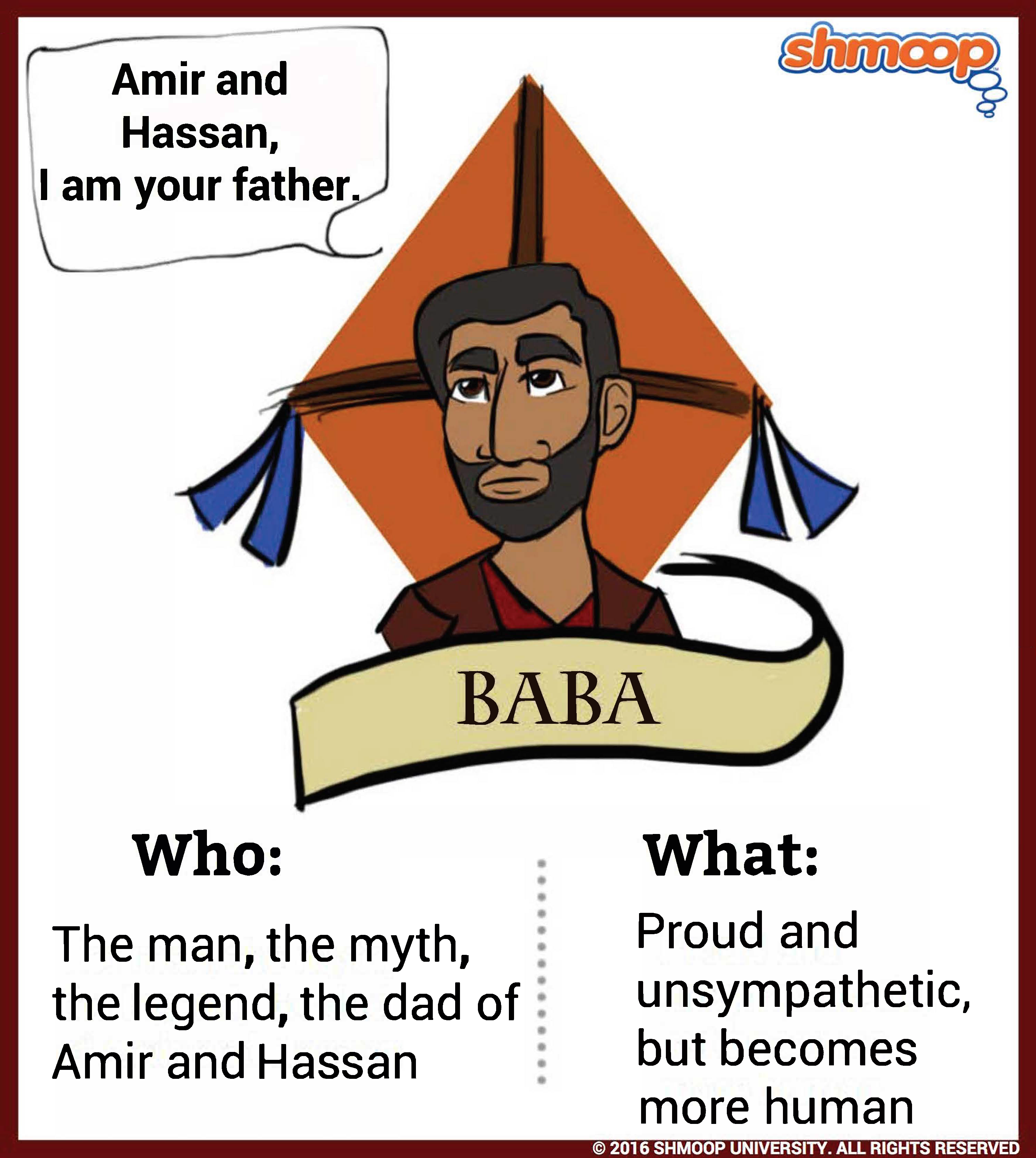Character Analysis

(Click the character infographic to download.)
Baba the Legend
Rahim Khan gives Baba his "famous nickname, Toophan agha, or 'Mr. Hurricane'" (3.2). At times Baba seems untouchable – unreachable – because he towers over ordinary men. Needless to say, he also towers over ordinary children like Amir. This is the man who wrestled a bear, builds an orphanage, and makes pronouncements like "there is only one sin, only one" (3.29). His physical presence is matched only by his moral severity. (Baba drinks and seems to generally enjoy life, but he also believes deeply in principles like nang and namoos, which, for those of you without your Dari dictionaries handy, are "honor" and "pride.")
In America Baba has neither the financial clout nor the social standing he once had in Afghanistan. Still, he does larger than life things. For example, he refuses food stamps and treatment for cancer. His graciousness is also still intact. We see this when he spends his life savings on Amir's wedding. There's a folkloric quality to this guy and he crashes through the pages like a bear in the underbrush.
That said, Baba doesn't offer Amir much in the way of a parent. If you're aloof and A Big Deal, how are you supposed to have an intimate, caring relationship with your son? The answer is – you don't. Baba's distance really affects Amir and is one of the major motivations for Amir's betrayal of Hassan. That's right: the old "I blame my father" defense.
Baba the Man
As the novel progresses, Baba comes to seem more and more human. One the novel's major revelations forces Amir to revise his memories of Baba. Rahim Khan tells Amir that Baba slept with Sanaubar, Ali's wife. Baba fathered Hassan and never told Amir or Hassan they were brothers. What about all those talks when Baba said there is only one sin? Baba, in Amir's eyes, is no longer a god making pronouncements, but a man who has sinned and who warns others not to make the same mistake. Said another way: Amir sees that Baba is just like him.
Baba adapts poorly to life in California. He has to work long hours at the gas station, and Amir sees him in a totally different light. More specifically, Amir sees him under the harsh fluorescent lights of the filling station after twelve-hour days. This figure of health and vitality, of power, is crushed by overwork like anyone else. Plus, Baba is diagnosed with cancer. Although he fights it, the disease lays waste to Baba's body. He's thin, pale – no longer the man who "thundered into the room" – and draws attention to himself only because he's deathly ill (3.2).
Likewise, there's a softening to Baba emotionally. In Fremont, he finally offers Amir more than cold shoulders and distant looks. As Baba is broken by America and work, his relationship with Amir seems to blossom. Although it's never stated explicitly, perhaps the two see each other more as equals instead of as barely related. (The ultimate irony is that Amir will come to see that his father is exactly like him: a betrayer, liar, and deeply flawed man.) In one of the more moving passages of the book, Baba warmly says to Amir, after Amir has just graduated from high school, "I am moftakhir [proud]" (11.31). Such openness and warmth is a far cry from the Baba of Kabul.